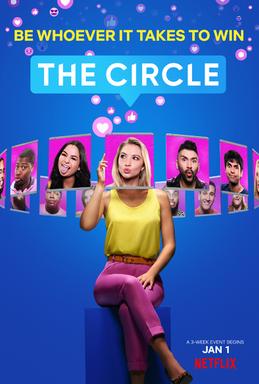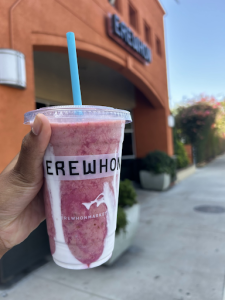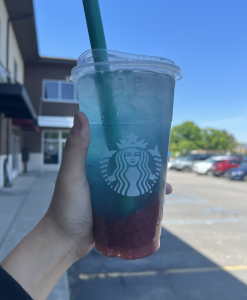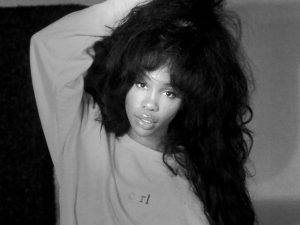Netflix’s new series “The Circle” is too one-dimensional
February 5, 2020

“The Circle” was released on Netflix in Jan. 2020, based off of the British TV show also called “The Circle.”`
This past January, Netflix debuted its own social reality, competition TV show. In The Circle, contestants remain isolated in individual rooms and their only means of communicating to other contestants is through a social media platform called the Circle. Each episode, the most popular players choose which character they would like to block (remove) from the game. The winner then receives $100,000. Here’s the catch: since players only interact through profile pictures, status updates and chats, they can be anyone they want to be. Contestants may share someone else’s photos to seem more attractive or even invent an entirely new “catfish” persona.
I have always been interested in competition shows like this. There is something so unexpectedly entertaining about watching a group of strangers live together in a power struggle for a cash prize. At first, the concept of The Circle seemed very interesting to me. It was something new that I had never seen before, yet similar enough to shows like Big Brother that I already knew I enjoyed. However, in many respects The Circle left me underwhelmed.
The show is designed to blur the line between fakeness and reality. As a result, every contestant is a certain level of artificial. Even those who are advocates for being true to themselves lie, in one way or another: saying they’re single when they are not, pretending to be friends with someone they can’t stand etc. This fakeness makes it hard to believe that any relationships are genuine. For me, one of the best parts of shows like Big Brother is seeing how a diverse group of strangers can find similarities and make connections that they wouldn’t otherwise. While The Circle does incorporate these elements, they are too unbelievable to appreciate.
The show also seems incredibly staged. I understand that virtually every reality TV show is staged to maximize the viewer’s entertainment, but The Circle does such a bad job masking this that it detracts from the actual content. Because spontaneous face to face interactions don’t occur on their own, producers construct events and scenarios that get contestants to communicate with each other.
Perhaps the most disappointing part of The Circle was its ending. The first 90 percent of the show are incredibly dragged out. This is not necessarily a flaw, but it made me wonder why then the end was so rushed? The conclusion to the show was so abrupt and the way in which the winner was chosen was so elementary that it left me very unsatisfied. Perhaps producers figured that once a viewer is invested in the show, they won’t care exactly how the ending is carried out and they will watch it anyway. I was certainly victim to this.
After finishing The Circle, although I was in most respects underwhelmed, I do not regret watching it. Despite how it may seem, I did get some good laughs out of it and it did keep me (for the most part) entertained. While it is by no means a critically acclaimed, must-see TV show, I do think it serves as a good cure to boredom and may partially fulfill avid reality competition show viewers like me. That being said, I am not eagerly anticipating a new season of The Circle but I may still watch it if there is one.










